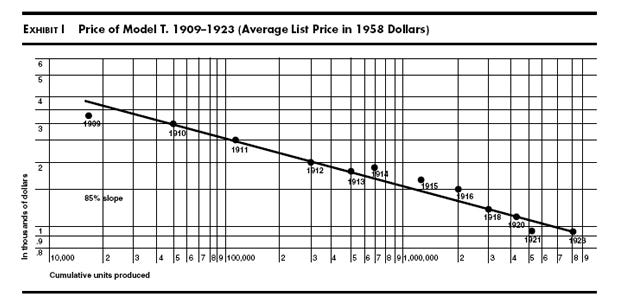ygolo
My termites win
- Joined
- Aug 6, 2007
- Messages
- 6,076
First of all, this is not a prediction. Instead, I'm stating it's a morally good thing for houses to be inexpensive permanently.
Additionally, we live in the current world with the way it is currently incentivized. I am guilty of all the stupidity and immorality as I am argue here. I am a homeowner in the suburbs and own more than I need-a complete hypocrite.
But, I urge that responses that argue that is not in fact morally good for housing to be very inexpensive to use something other than hypocrisy as the counter.
A better version of ourselves practically necessitates that the current version is hypocritical with respect to new ideals.
Benefits
1. Reduced homelessness. When it costs less to give people homes, it takes less to do that. Almost a tautology.
2. Reduced poverty. The vast majority of "wealthy" people have the majority of their "wealth" in their homes. But the main productive value a home is that it provides for people is shelter. The excess beyond shelter(and some comfort), takes land away from farming, forest land, and other means of productive use of space. If the basics were affordable for everyone, the extra, especially if there's little speculative gain in exchangeable value, will be seen as the narcissistic and wasteful flex that it is. All the other things people exchange their money for will gain where housing loses.
3. Reduced pollution. The most wateful way to live is suburbia. Rural areas when cultivated well produce food. Due to density, cities actually have less pollution per capita(and can be reduced further if mix use could create shorter or no commutes), and undeveloped land is great if reforested.
Useful concepts
1. We can see inflation as a list of numbers instead of a single number. I know we're trained by the media to think of it as one abstract number. But in our day to day life, if my wife and I like a particular milk for a combination of health and taste reasons, we're not going to suddenly switch to a substitute. Each thing we regularly buy has it's own change in price. This includes what we pay for shelter. For most people, this means paying either a rent or a mortgage. At one time, when cars were new, they were more expensive than houses. Now houses can go for 10 times what cars go for. Financial experts now call cars "financial napalm" but consider houses part of a diversified portfolio. Interestingly, even though most people don't think of it this way, we pay exponentially less every couple years for transistors (in the form of electronics)
2. Socially sustained exponential decreases in price exist. The most famous of these is known as Moore's law (the exponential decrease in the cost of transistors). But it must be stressed that this is not a law of physics. It is a collective goal sustained by increasing efforts (see Moore's Second Law) in the face of hurdles put up by the laws of physics. They may fail at any point, and people point to evidence it's slowing. There are others, like the exponential drop in cost of sequencing a human genome. Why don't we make collective goals enlisting humanity's creativity to exponentially lower the costs of basic needs like food and shelter?
3. We know how to build vertically. It's out of favor now because density also brings traffic and could potentially strain resources. But these limitations could be designed around. Future cities could be much better than current ones. Suburbia could also become more dense.
4. Mix use land may be more productive. Trump bragged about how he lived and worked in the same building in the Art of the Deal (I am no Trump fan, but I take ideas from everyone). Imagine if the same area is used for power production, green sections for photosynthesis and recreation, housing, shopping, farming, and business...like a city in a building. Would that be possible?
5. NIMBYs. I feel sorry for people named Karen. I'm not sure why that's the name picked for people causing significant inconvenience, if not harm, for others simply to get their whims met. I think a better name would be a NIMBY-which stands for not in my back yard. I understand raising legitimate concerns about various things. But instead of voicing concerns and allowing people to address the plans, often they go into blocking a project mode before the project even takes shape.
6. People make fun of status seekers and speculators in one domain but not others. It's easy to make fun of someone who paid ridiculous amounts of money for a bored Ape NFT, but there are pieces of modern art I don't get either. We make fun of people owning virtual pieces of metaverse real estate, but applaud people getting way more home than they'll ever need in the real world. The difference is the real world extra is eating a lot more resources than the virtual nonsense(even though it eats resources also). I'm not advocating the hype around the metaverse and NFTs. I am pointing out that this stupidity happens already in the real world. Buying exhorbitantly for the status is there for NFTs as well as for the extra of a house. Waisting tons of the world's resources buying because you are hoping for the price to go up happens both with bitcoin as well as with the extra of a house.
Additionally, we live in the current world with the way it is currently incentivized. I am guilty of all the stupidity and immorality as I am argue here. I am a homeowner in the suburbs and own more than I need-a complete hypocrite.
But, I urge that responses that argue that is not in fact morally good for housing to be very inexpensive to use something other than hypocrisy as the counter.
A better version of ourselves practically necessitates that the current version is hypocritical with respect to new ideals.
Benefits
1. Reduced homelessness. When it costs less to give people homes, it takes less to do that. Almost a tautology.
2. Reduced poverty. The vast majority of "wealthy" people have the majority of their "wealth" in their homes. But the main productive value a home is that it provides for people is shelter. The excess beyond shelter(and some comfort), takes land away from farming, forest land, and other means of productive use of space. If the basics were affordable for everyone, the extra, especially if there's little speculative gain in exchangeable value, will be seen as the narcissistic and wasteful flex that it is. All the other things people exchange their money for will gain where housing loses.
3. Reduced pollution. The most wateful way to live is suburbia. Rural areas when cultivated well produce food. Due to density, cities actually have less pollution per capita(and can be reduced further if mix use could create shorter or no commutes), and undeveloped land is great if reforested.
Useful concepts
1. We can see inflation as a list of numbers instead of a single number. I know we're trained by the media to think of it as one abstract number. But in our day to day life, if my wife and I like a particular milk for a combination of health and taste reasons, we're not going to suddenly switch to a substitute. Each thing we regularly buy has it's own change in price. This includes what we pay for shelter. For most people, this means paying either a rent or a mortgage. At one time, when cars were new, they were more expensive than houses. Now houses can go for 10 times what cars go for. Financial experts now call cars "financial napalm" but consider houses part of a diversified portfolio. Interestingly, even though most people don't think of it this way, we pay exponentially less every couple years for transistors (in the form of electronics)
2. Socially sustained exponential decreases in price exist. The most famous of these is known as Moore's law (the exponential decrease in the cost of transistors). But it must be stressed that this is not a law of physics. It is a collective goal sustained by increasing efforts (see Moore's Second Law) in the face of hurdles put up by the laws of physics. They may fail at any point, and people point to evidence it's slowing. There are others, like the exponential drop in cost of sequencing a human genome. Why don't we make collective goals enlisting humanity's creativity to exponentially lower the costs of basic needs like food and shelter?
3. We know how to build vertically. It's out of favor now because density also brings traffic and could potentially strain resources. But these limitations could be designed around. Future cities could be much better than current ones. Suburbia could also become more dense.
4. Mix use land may be more productive. Trump bragged about how he lived and worked in the same building in the Art of the Deal (I am no Trump fan, but I take ideas from everyone). Imagine if the same area is used for power production, green sections for photosynthesis and recreation, housing, shopping, farming, and business...like a city in a building. Would that be possible?
5. NIMBYs. I feel sorry for people named Karen. I'm not sure why that's the name picked for people causing significant inconvenience, if not harm, for others simply to get their whims met. I think a better name would be a NIMBY-which stands for not in my back yard. I understand raising legitimate concerns about various things. But instead of voicing concerns and allowing people to address the plans, often they go into blocking a project mode before the project even takes shape.
6. People make fun of status seekers and speculators in one domain but not others. It's easy to make fun of someone who paid ridiculous amounts of money for a bored Ape NFT, but there are pieces of modern art I don't get either. We make fun of people owning virtual pieces of metaverse real estate, but applaud people getting way more home than they'll ever need in the real world. The difference is the real world extra is eating a lot more resources than the virtual nonsense(even though it eats resources also). I'm not advocating the hype around the metaverse and NFTs. I am pointing out that this stupidity happens already in the real world. Buying exhorbitantly for the status is there for NFTs as well as for the extra of a house. Waisting tons of the world's resources buying because you are hoping for the price to go up happens both with bitcoin as well as with the extra of a house.



